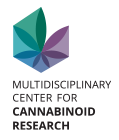Nir Treves , Noa Mor , Karel Allegaert, Hely Bassalov, Matitiahu Berkovitch , Orit E. Stolar & Ilan Matok
Division of Clinical Pharmacy, School of Pharmacy, Faculty of Medicine, The Hebrew University of Jerusalem, Jerusalem, Israel.
Department of Development and Regeneration, KU Leuven, Leuven, Belgium
Department of Pharmaceutical and Pharmacological Sciences, KU Leuven, Leuven, Belgium
Department of Hospital Pharmacy, Erasmus MC University Medical Center, Rotterdam, the Netherlands
Clinical Pharmacology Unit, Shamir Medical Center (Assaf Harofeh), Zerifin, Sackler Faculty of Medicine, Tel-Aviv University, Tel Aviv, Israel
The Autism Center, Alut, Shamir Medical Center (Assaf Harofeh), Zerifin
Despite the increased use of medical cannabinoids, the efficacy and safety of the treatment among children remain uncertain. The objective was to study the efficacy and safety of medical cannabinoids in children. The search included studies through 11-May-2020. Selection criteria included studies evaluating efficacy and safety outcomes of medical cannabinoids (tetrahydrocannabinol, cannabidiol and other cannabis derivatives) versus control in children, independently assessed by two reviewers. Eight studies were included, all of which are randomized controlled trials. Cannabidiol is associated with 50% reduction in seizures rate (Relative Risk (RR) = 1.69, 95% CI [1.20–2.36]) and caregiver global impression of change (Median Estimated difference = (− 1), 95%CI [− 1.39–(− 0.60)]) in Dravet syndrome, compared to placebo. While cannabidiol was associated with a reduction in reported seizure events (RR = 0.59, 95% CI [0.36–0.97]), no association was found in products contained also tetrahydrocannabinol (RR = 1.35, 95% CI [0.46–4.03]). Higher dose of cannabidiol was associated with decreased appetite (RR = 2.40, 95% CI [1.39–4.15]). A qualitative assessment suggests that medical cannabinoids might be associated with adverse mental events. In conclusion, cannabidiol is associated with clinical improvement in Dravet syndrome. However, cannabidiol is also associated with decreased appetite. Adverse mental events were reported as well, however, more research should be performed to assess well this outcome.
